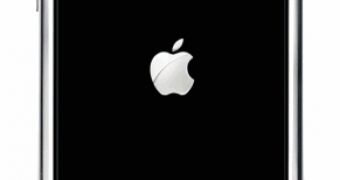Although jailbreaking has been declared legal, Apple is not obligated to comply, in that it would not attempt to thwart such practices. As such, the company’s stance on iOS jailbreaks has not changed since July 09, when a Support document posted online by the iPhone maker signaled that “Unauthorized modification of iOS has been a major source of instability, disruption of services, and other issues.”
Apple’s knowledge base article HT3743 talks about adverse issues experienced by customers who’ve hacked their iOS devices, mentioning instability, disruption of services, and even compromised security.
The company provides a lengthy explanation of how jailbreaks can reduce the quality of a user’s experience by saying, “As designed by Apple, the iOS ensures that the iPhone, iPad, and iPod touch operate reliably. Some customers have not understood the risks of installing software that makes unauthorized modifications to the iOS (‘jailbreaking’) on their iPhone, iPad, or iPod touch. Customers who have installed software that makes these modifications have encountered numerous problems in the operation of their hacked iPhone, iPad, or iPod touch.” Apple then provides examples of issues caused by these unauthorized modifications (reproduced below).
Device and application instability: Frequent and unexpected crashes of the device, crashes and freezes of built-in apps and third-party apps, and loss of data. Unreliable voice and data: Dropped calls, slow or unreliable data connections, and delayed or inaccurate location data. Disruption of services: Services such as Visual Voicemail, YouTube, Weather, and Stocks have been disrupted or no longer work on the device. Additionally, third-party apps that use the Apple Push Notification Service have had difficulty receiving notifications or received notifications that were intended for a different hacked device. Other push-based services such as MobileMe and Exchange have experienced problems synchronizing data with their respective servers. Compromised security: Security compromises have been introduced by these modifications that could allow hackers to steal personal information, damage the device, attack the wireless network, or introduce malware or viruses. Shortened battery life: The hacked software has caused an accelerated battery drain that shortens the operation of an iPhone, iPad, or iPod touch on a single battery charge. Inability to apply future software updates: Some unauthorized modifications have caused damage to the iOS that is not repairable. This can result in the hacked iPhone, iPad, or iPod touch becoming permanently inoperable when a future Apple-supplied iOS update is installed.
Cupertino stresses that customers are strongly advised not to install any software that hacks iOS, and that Apple may deny service for an iOS device, should the customer have hacked it. It concludes by urging iPhone owners to note that “unauthorized modification of the iOS is a violation of the iPhone end-user license agreement.”

 14 DAY TRIAL //
14 DAY TRIAL //